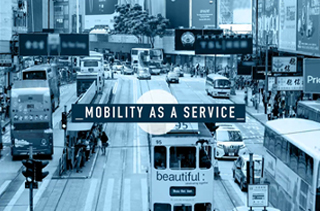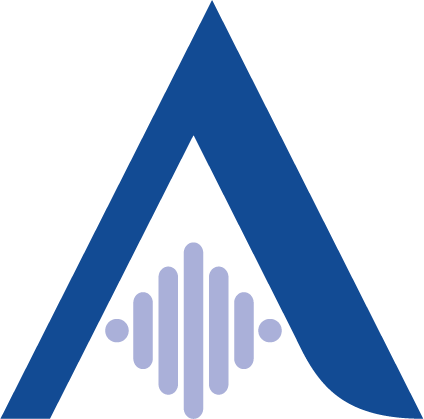
The scenario
People, businesses, and institutions are increasingly intertwined: from citizen services to smart mobility, from inclusion in the workforce to the protection and enhancement of local communities.
Digital transformation enables new service models to improve people quality of life and make communities more resilient and dynamic.
$330 bln
value of global market for smart city up to 2032
€2 bln
value of investments in Italy for smart city up to 2027
+20%
growth of global IoT market for smart city up to 2032
$175 bln
value of global market for smart government up to 2033
30%
CAGR (2025-2030) of AI market for local and central Public Administration at a global level
75%
of public administrations in Italy will migrate onto Cloud by 2026
$194 bln
value of global market for smart mobility up to 2032
$6,5 bln
value of global market for virtual tourism up to 2032
Almaviva Group for Citizenship & Government
We build sustainable, interconnected, and inclusive communities, supporting the digital transformation of businesses and central and local public administrations to foster the sustainable growth of citizens, regions, and the Country system.
1+ mln
digital procedures
10+ mln
digitalized cultural heritage
540 mln
issued travel passes
3,000
dedicated professionals
140+
active customers
40+
years of experience
Our core competence
Almaviva Group invests in technologies, research, innovation, platforms, expertise, and strategic alliances to make the value of information increasingly tangible and accessible, contextualized and enhanced according to the perception and needs of users, customers, communities, and the market.
Smart territories use this new knowledge to support better decisions regarding security, energy consumption, waste management, mobility, healthcare, education, and more.
Poeple
citizenship
Public Administration
administration
welfare
Territory
environment
tourism
cultural heritage
Transportation
mobility
infrastructure
An end-to-end strategy for a future-proof digital transformation
The digital transformation of cities involves diverse and integrated dimensions, linked by the need to also promote a sustainable ecological transition.
This gives rise to a new concept of urban, environmental, and energy community, for a new interpretation of the territory, also in light of smart mobility paradigms: sustainable and interconnected cities where technological innovation, local expertise, and people participation improve the quality of life, fostering urbanization centered on citizens' needs and sustainable economic growth.
Almaviva Group platform ecosystem
Almaviva Group is launching a new value proposition, based on strong technological and industry expertise combined with investments in research and development.
This new value proposition offers a solution to public administrations and businesses engaged in the Country digital transformation and ecological transition, to provide quality services to people through a continuous experience.
Our main experiences
Success stories in the Government sector
Single PA personnel management system (Cloudify NoiPA) and Public Accounting Management System (INIT)
for Dipartimento dell'Amministrazione Generale, del Personale e dei Servizi del MEF
National Platform of River Contracts
for Osservatorio Nazionale dei Contratti di Fiume
Hydrogeological instability, on-site landslide monitoring across the Country
for Ministero dell'ambiente e della sicurezza energetica
Operational management of the all corporate and citizen IT systems hosting
for Azienda Regionale per l'Innovazione e gli Acquisti
Management solution for the entire lifecycle of administrative documents
for Regione Campania
MapView - the GeoBrowser that collects all the geographic data of the territory
for Provincia Autonoma di Bolzano
Data Platform for environmental data consulting & analysis
for Regione Lombardia
Portal for online applications & citizen service management, payments (via PagoPA), and notifications (APPIO and SEND)
for Regione Veneto
Accounting and HR platform, regional application management, services for administration and citizens
for Regione Emilia-Romagna
National system for museum accessibility and ticketing
for Direzione Generale Musei
Single Portal for Regional Services and System for Unified Programming
for Regione Sardegna
Big Data Platform for the Tourism Data Observatory
for Regione Friuli-Venezia Giulia
Digitization of photographic archives and museum objects
for Regione Sicilia
Database of accommodation facilities and national list of tourist guides
for Ministero del Turismo
New regional Tourism portal
for Regione Veneto
Veneto Data Platform - the ecosystem for managing integrated data and a dynamic view of the territory
for Regione Veneto
Success stories in the Municipality sector
Mesmart - smart platform for urban security that integrates IoT sensors and satellite analysis for predictive monitoring of the territory for the management of critical events
for Comune di Messina
Forestame - environmental analysis system that monitors vegetation health and heat areas, calculates KPIs to improve air quality and urban safety
for Comune di Messina
Smart Land - interoperable platform for Local Authorities that enables simplified management of the territory in strategic areas: parking, mobility and Civil Protection
for several Municipalities in Umbria
An integrated approach to real estate management using BIM and GIS to optimize maintenance and energy efficiency
for La Sapienza - Università di Roma
MyData - centralized platform for the "Citizen Information System", enhances the digitalization of the Public Administration with a view to Smart City, improving user interaction
for Regione Veneto
Smart City platform with IoT/GIS verticalizations for the waste cycle that streamlines logistics, monitors assets in real time and tracks the disposal chain
for Comune di Bari
Big Data platform for the integration of heterogeneous data from IoT instruments with a web app console for the georeferenced cartographic representation of assets
for Comune di Reggio Calabria
Predictive Oracle (AI) for PA process optimization (CILA authorization release), which integrates environmental/water monitoring consoles with sensors
for Comune di Bari
E-governance strategy with App Fascicolo (citizen services) and Data Lake (centralized BI), adopting AI algorithms to accelerate permit issuance times
for Comune di Milano
Georoma - the institutional geocadastre of Rome Capital for citizens, professionals and Public Administration
for Roma Capitale
Success stories in the urban/local Transportation sector
Smart Road & C-ITS - major implementation of the Smart Road in the EU (80 KM) with future extension to the urban areas of Roma Capitale
for ANAS - Gruppo FS Italiane
Decision-support System - traffic monitoring to develop response strategies to mobility criticalities and emergencies
for ANAS - Gruppo FS Italiane
Infrastructure Monitoring System - centralized platform for monitoring infrastructure and works of art (bridges, viaducts, overpasses) across the entire national network
for ANAS - Gruppo FS Italiane
Traffic Management Control - Situation Room for integrated mobility management during the 2021 Ski Championships in Cortina
for ANAS, Concessioni Autostradali Veneto, 2021 FIS Alpine World Ski Championships
On-ground Infomobility - passenger information on 1,600 RFI stations and over 200 regional railway stations in Italy
for RFI - Gruppo Ferrovie dello Stato Italiane
Traffic Management - over 350 RFI stations supported in traffic management
for RFI - Gruppo Ferrovie dello Stato Italiane
Infrastructure Monitoring - digitalization of 24,000 km of RFI railway lines
for RFI - Gruppo Ferrovie dello Stato Italiane
Mobility Center with a control room that integrates and processes information acquired from intelligent transport systems to build a dynamic and predictive image of the mobility status and allow the control of actuation subsystems and infomobility services for end-users
for Mobilità Roma
Super integrated ticket and the best fare with just one tap, thanks to an important collaboration with Regione Campania
for Unico Campania
On-ground Infomobility - real-time information at 189 stations of the Finnish railway network (audio/video, multilingual/multialphabet in Finnish, Swedish, English and Russian)
for Finrail
Research projects in the Tourism sector
DIGIT
smart platform for managing tourist flows, integrating heterogeneous data into a predictive and participatory model
to optimize itineraries, simulate scenarios and better distribute flows, enhancing cultural heritage and involving local communities
GIFTIV
data-driven model to monitor and manage tourist flows and intermodal mobility in the Veneto region, combining data from transport, spending, weather and telcos with AI and analytics
to provide support to public decision makers and operators in strategic planning, improve the tourist experience and reduce environmental impact
INDICE
digital innovation platform for cultural and tourism businesses in the Veneto region, combining Big Data, AI, Digital Twin, biometric security, and 3D animation
to centralize data and ICT solutions and make cultural venues more attractive and competitive at a national and international level
NA VITA
PESA model for monitoring and forecasting tourism impact on the territory, economy, society, and the environment
to provide local authorities with concise and actionable indicators, and enable targeted public policies for a more sustainable and aware management of tourist destinations
SITSEE
data-driven approach to wine event management, based on the development of a tourism impact assessment model
to support decision-making processes in food and wine tourism in North-Eastern Italy
Research projects in the urban/local Transportation sector
MOST
For the National Centre for Sustainable Mobility we work on
- integrated Rail Control Room systems for real-time train monitoring (via sub-metric localization)
- traffic prediction and smart parking management in urban contexts
- C-ITS solutions for smart road certification in extra-urban contexts
- monitoring and simulation of freight flows on a national scale and road-ship intermodality with the truck appointment system in freight transport and logistics
LABORATORIO SU STRADA CCAM and Smart Infrastructures
For the CCAM&MOD4ITALY Flagship of the CN MOST we work on
- creation of a digital ecosystem (research infrastructures, national platforms, and laboratories) for the development, testing, and certification of solutions for connected, cooperative, and automated mobility (CCAM)
As part of the "Mostra di Oltremare" Living Lab, we are developing:
- a C-V2X communications platform
- a PKI testing laboratory for C-ITS message encryption
- compliance with regulations and guidelines
RETURN
The RETURN platform provides a unique digital dashboard for the analysis of multi-risks connected to climate change, capable of
- integrating research products and analyses developed by universities and research centers
- monitoring the health of critical infrastructure and raising alerts when thresholds are exceeded
- monitoring and geolocating vehicle fleets (exceptional transport) in real time
- offering decision-making support tools for those managing risk situations and emergencies related to climate change
Insights
-
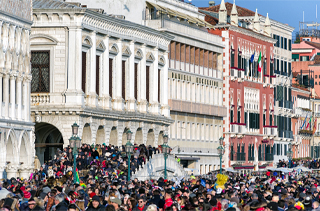
Overtourism: introducing DIGIT
Almaviva-SMACT project that safeguards cultural heritage and promotes smart tourism
-

“Territory, Mobility, and Welfare: integrated strategies for sustainable communities”
Almaviva Group at ANCI Annual Conference
-
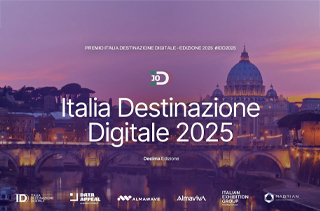
Digital Destination Italy 2025
The results of the tenth edition of the “tourism oscars”
-
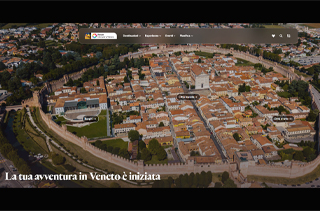
Tourism
The new version of veneto.eu is now online
-
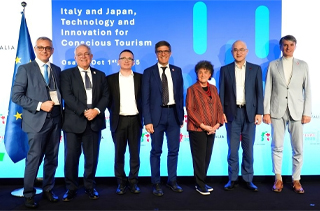
Almaviva Brings Digital Tourism to the Italy Pavilion at Expo 2025 Osaka
Digital technologies as a powerful driver for more sustainable, inclusive, and people-centered tourism
-
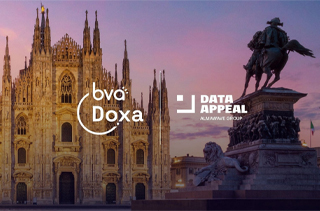
In Milan, more tourism does not mean lower quality of life
The Data Appeal Company study combining objective data and residents’ perceptions to understand the impact of overtourism in urban areas
-
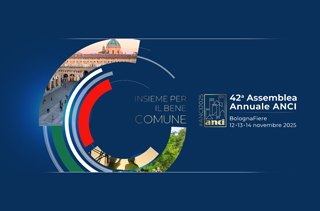
“Together for the Common Good”
Almaviva Main Partner of 2025 ANCI Annual Meeting
-

Overtourism in Naples
Almaviva Digitaltec NA VITA project studies a digital model to sssess its impact



